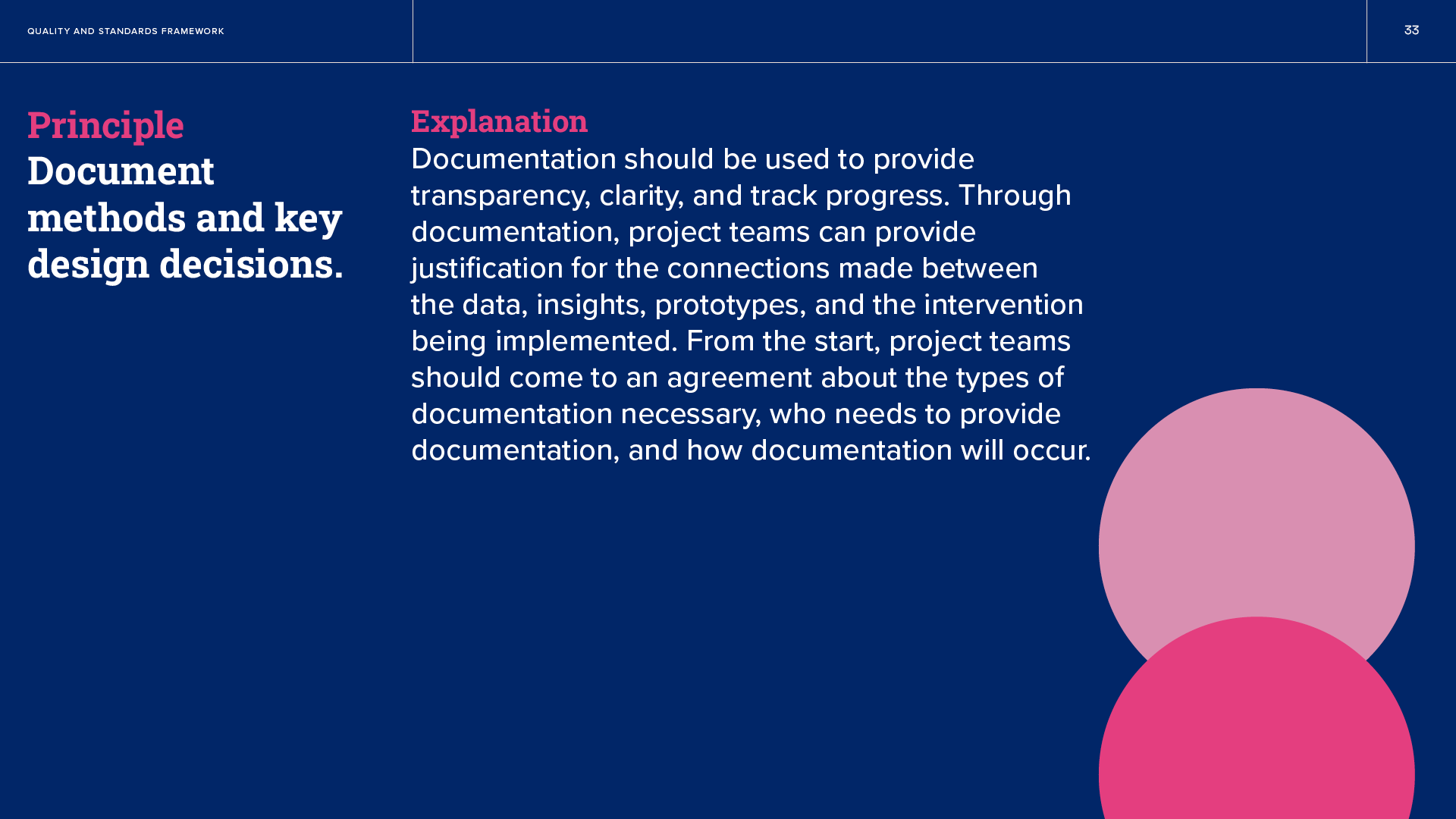Quality and Standards Framework
The Framework in Full
Principle: Engage youth as design partners
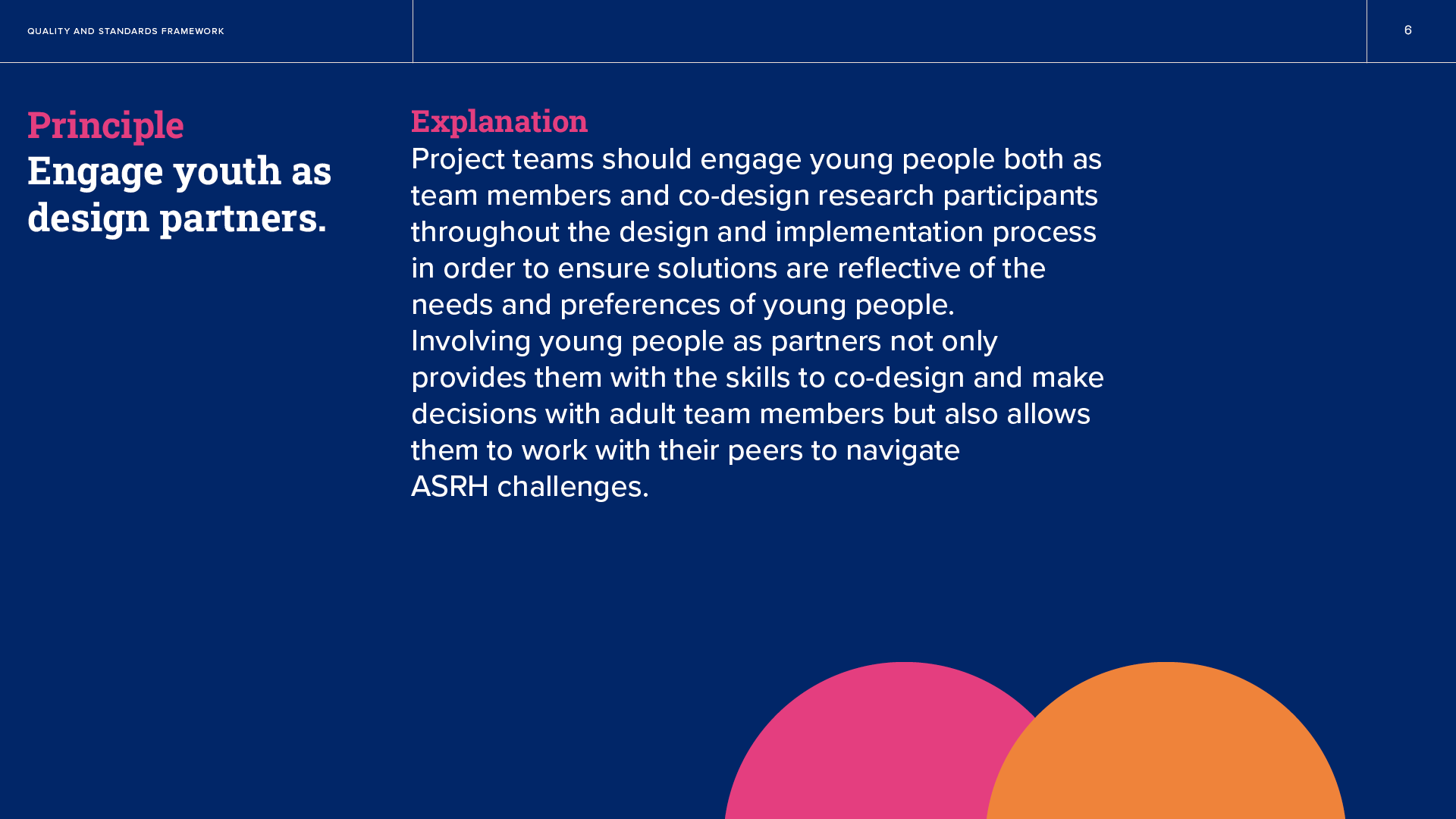
Principle: Ensure equitable inclusion of different subsets of young people
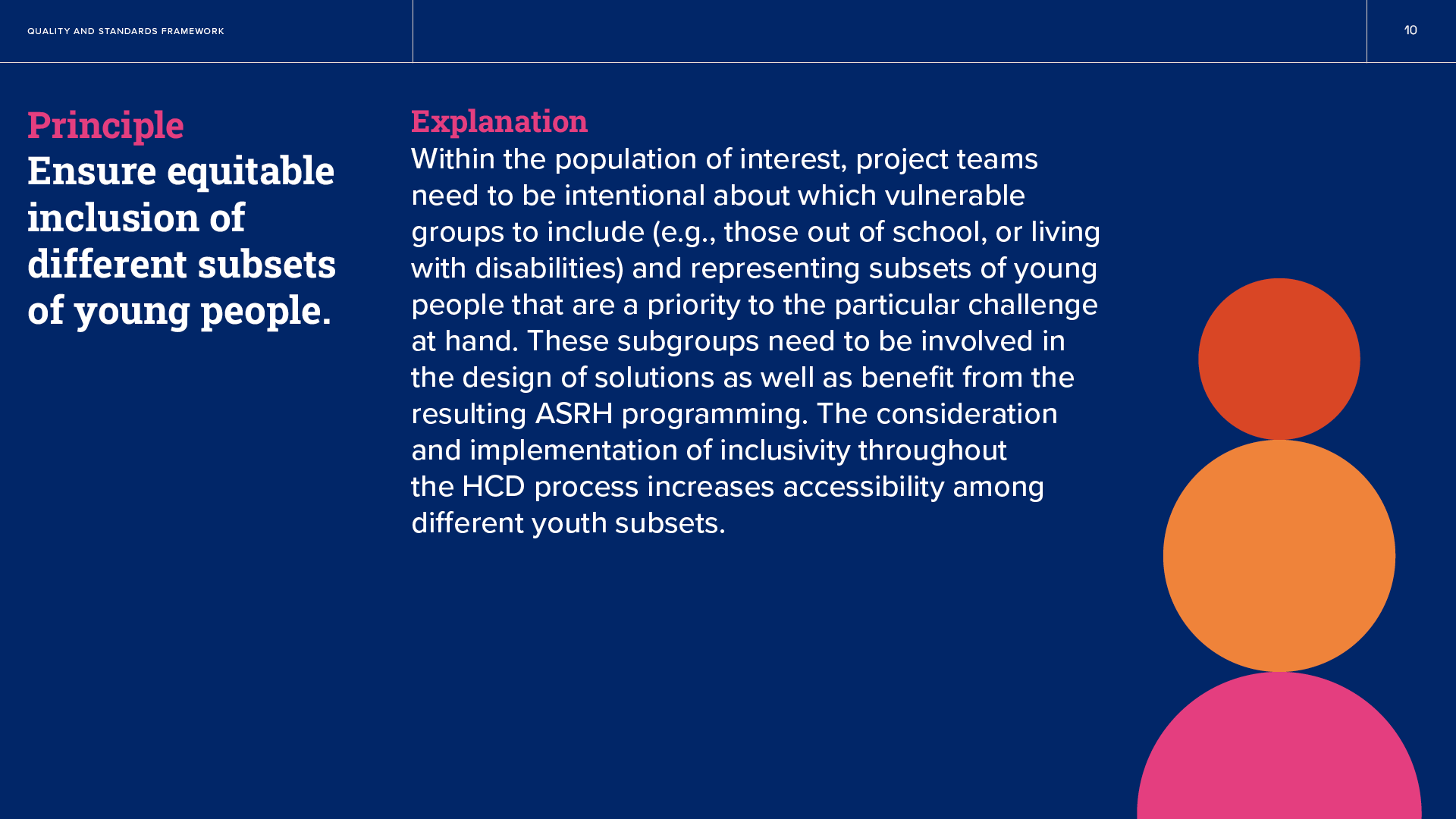
Principle: Develop and implement safeguarding plans for young people
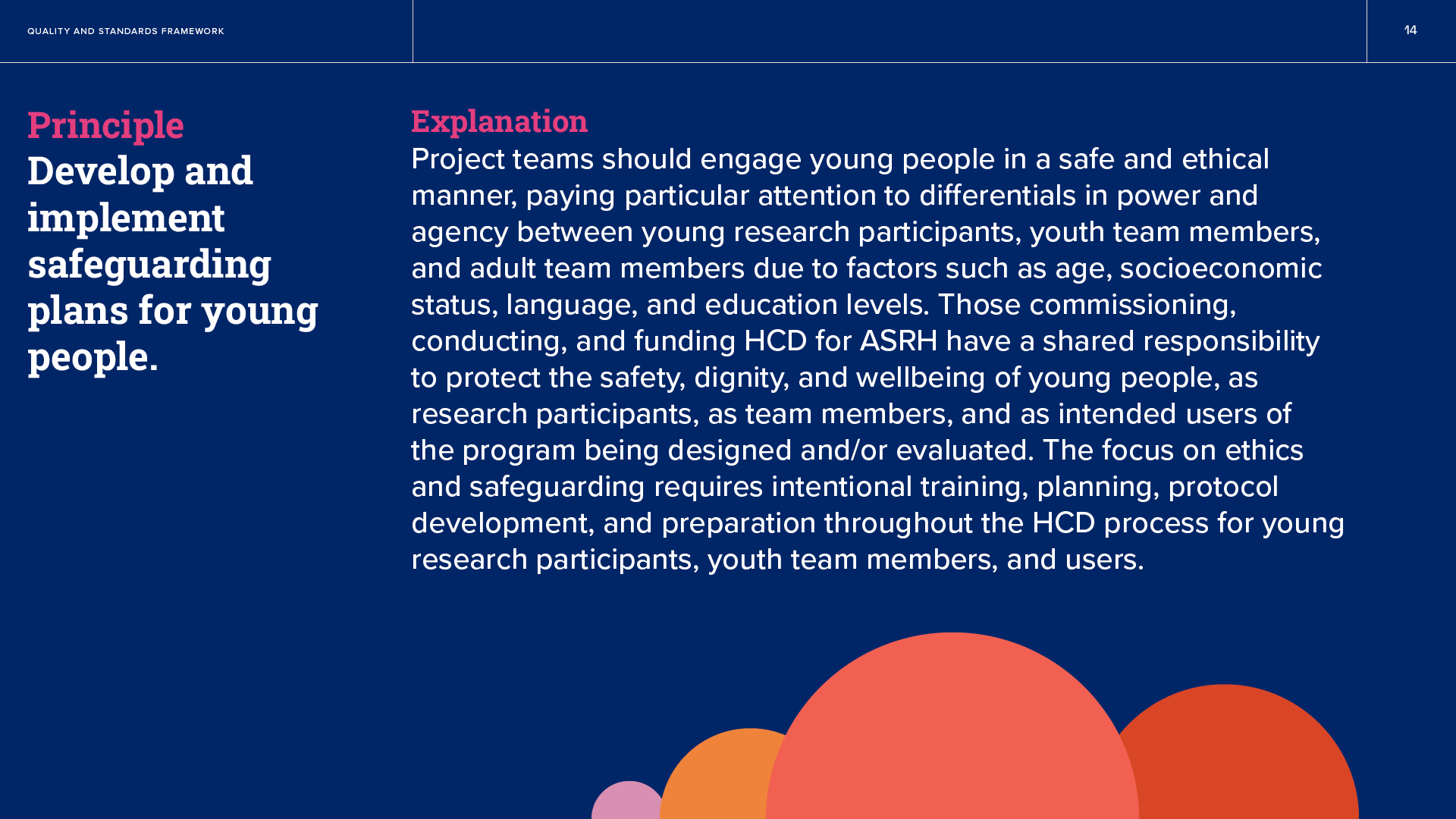
Principle: Embrace an iterative approach to program design and implementation
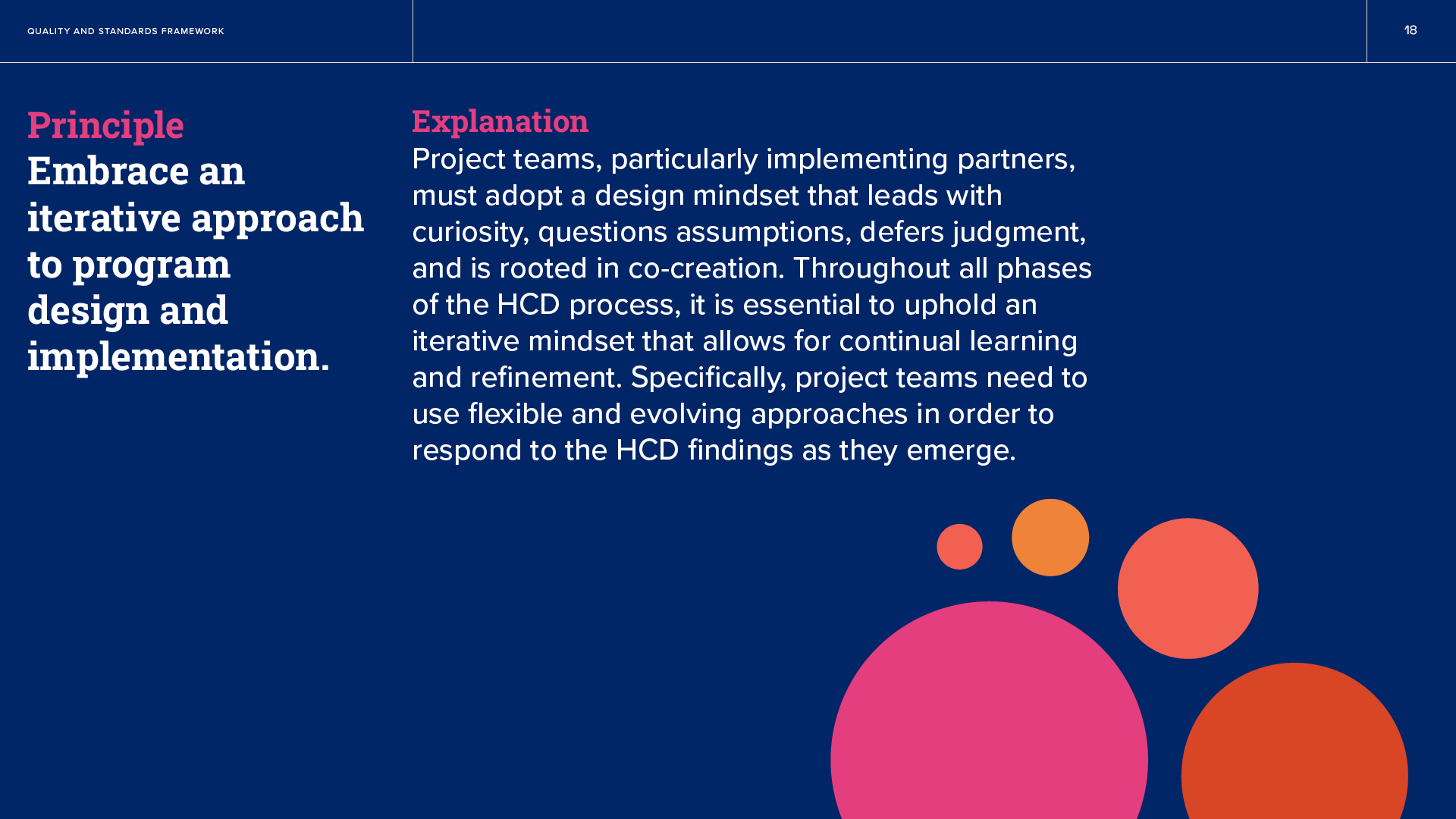
Principle: Integrate primary and secondary learnings and evidence
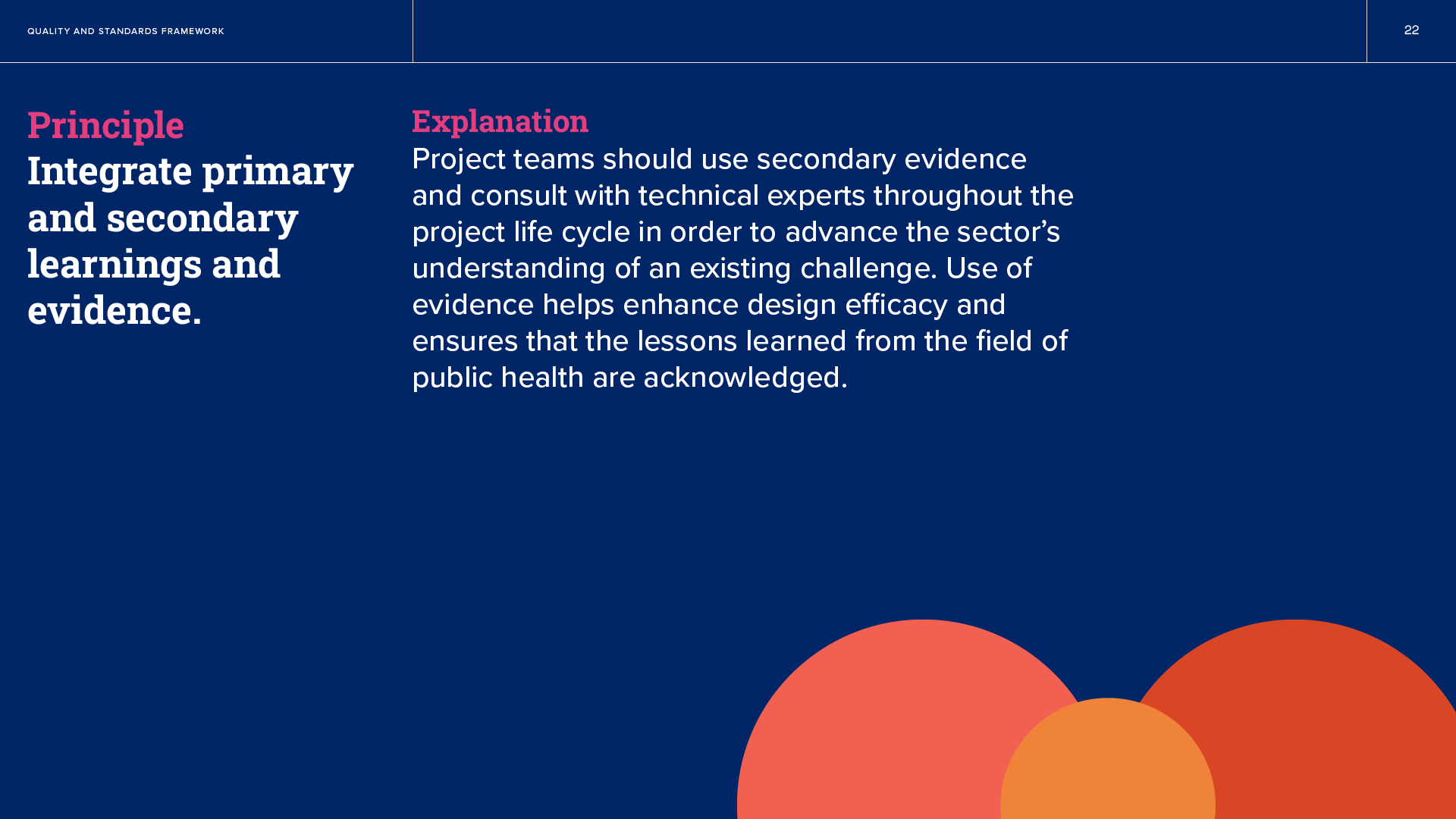
Principle: Engage the ecosystem of influencers
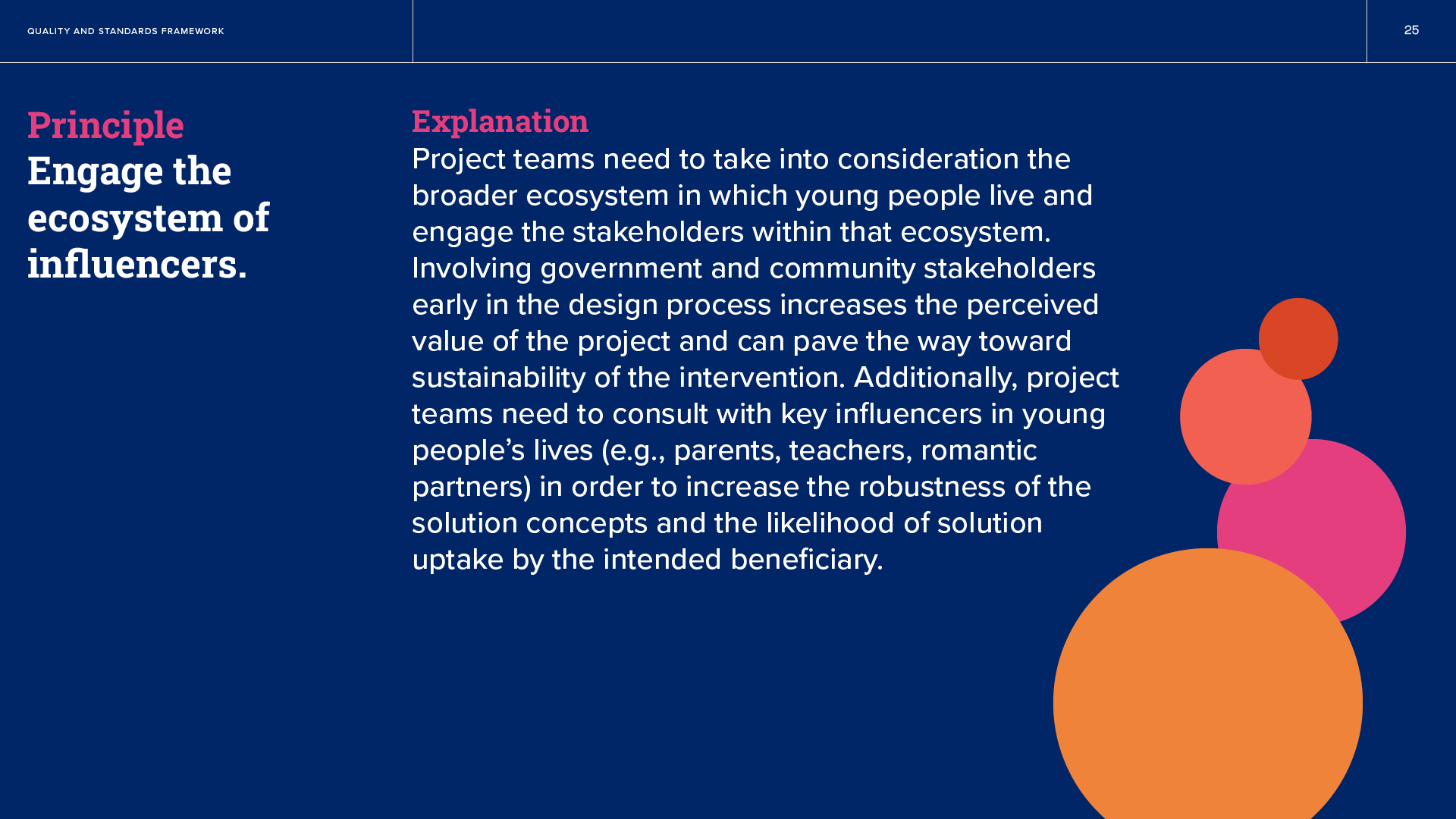
Principle: Integrate disciplines essential for adolescent wellbeing
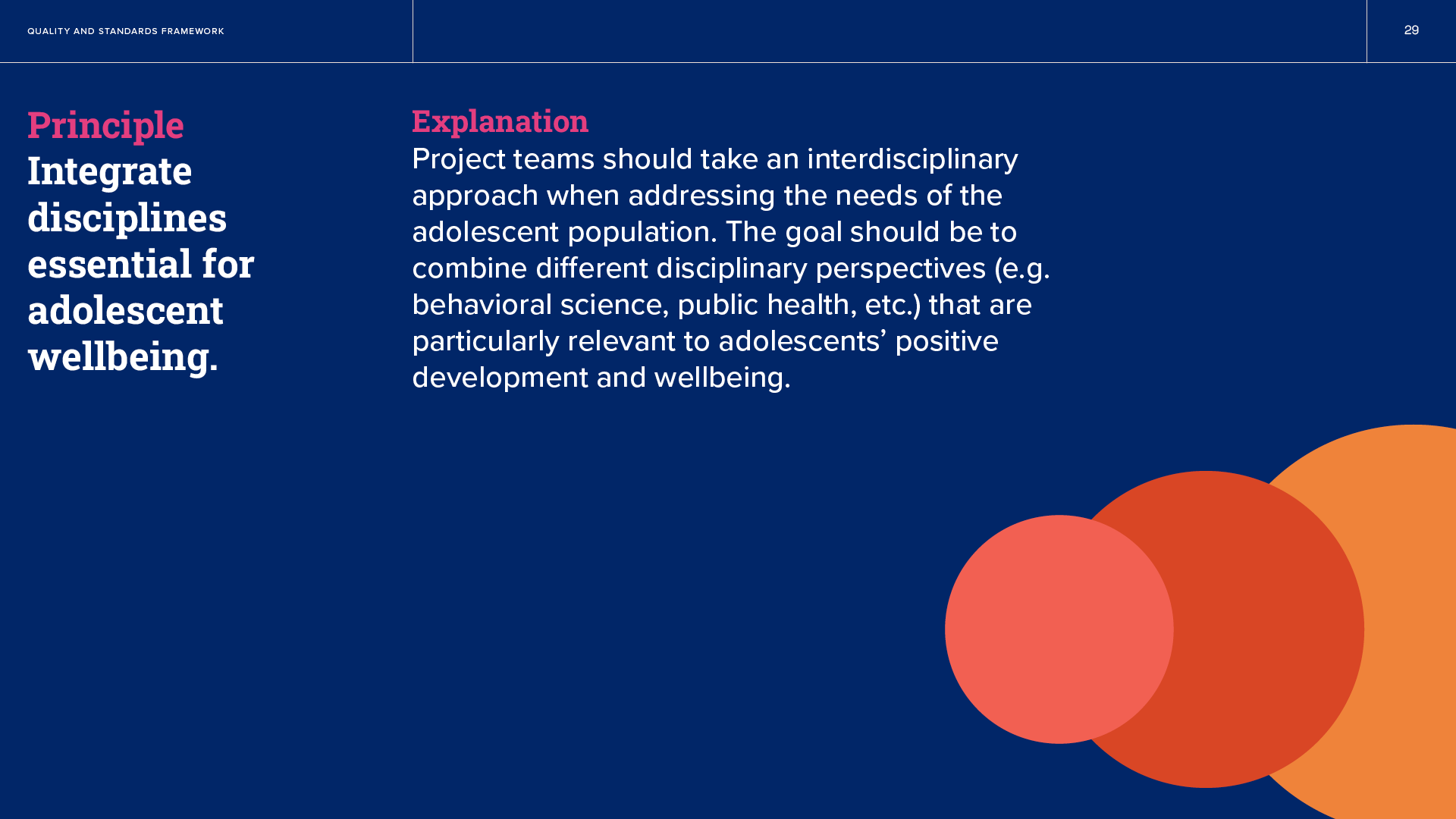
Principle: Document methods and key design decisions
